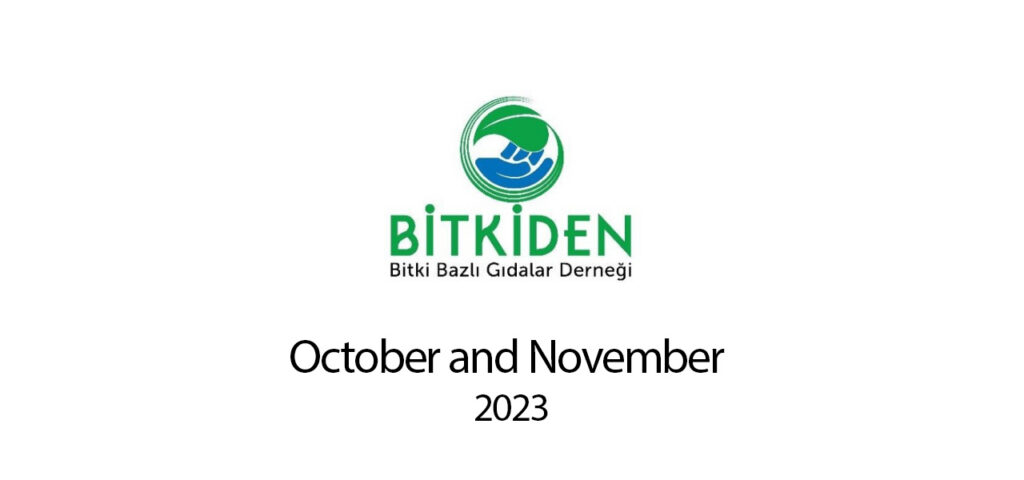Decision on ‘Veggie Burger’ Name for Beef to Be Resolved by European Union (EU) Court, August 18, 2023
According to supporters of meat alternatives, the upcoming ruling by the EU’s highest court needs to clarify the use of names associated with animal-based food products for plant-based food products. Although plant-based protein food products are gaining popularity in the European Union, there is still uncertainty about how they should be marketed in the EU Single Market. This uncertainty is expected to be resolved with the Luxembourg-based European Court of Justice (ECJ) entering the ‘veggie burger’ debate. Elena Walden, senior policy manager at the Good Food Institute (GFI), said, “This case will definitively determine whether the EU will take a consistent approach to plant-based food labeling or force companies and consumers to grapple with 27 different sets of rules.” According to Walden, the EU judges’ interpretation will have far-reaching implications for the sector, as other EU countries such as Italy and Belgium are considering enacting national laws to ban the use of meat-related terms on plant-based products.
Leading EU Health Organization Says Plant-Based Diet Can Help Combat Diabetes, August 16, 2023
Diabetes, a chronic metabolic disease characterized by high blood sugar levels, has serious effects on the heart, blood vessels, eyes, kidneys, and nerves. Over the past thirty years, the prevalence of type 2 diabetes, the most common form, has dramatically increased worldwide. font-family: var(–bs-body-font-family); font-size: var(–bs-body-font-size); font-weight: var(–bs-body-font-weight); text-align: var(–bs-body-text-align);”>increased dramatically worldwide over the past thirty years. This global health crisis, with 422 million people diagnosed each year and 1.5 million deaths directly attributable to diabetes, has prompted urgent action.
Science has pointed to plant-based diets in this regard. The global medical community has taken action to make it easier to cope with disease. To this end, the Diabetes and Nutrition Working Group of the European Association for the Study of Diabetes (EASD) has published new recommendations highlighting the benefits of plant-based diets in managing and preventing diabetes. Published in the journal Diabetologia, these guidelines offer healthcare professionals an evidence-based approach to care.
GLOBAL DEVELOPMENTS
To Achieve Carbon Neutrality Targets, Asia’s Protein Production Must Be 50% Animal-Free by 2060, August 18, 2023
A new report states that countries in Southeast Asia and the Asia-Pacific region must increase their alternative protein production by 2030 to help mitigate the climate crisis, as animal protein and associated emissions are expected to peak by the end of this decade. By 2060, alternative proteins will need to make up 50% of the region’s total protein production to decarbonize. The report, published by Singapore-based Asia Research Engagement, says alternative proteins are key to combating the climate crisis in the world’s largest and most populous continent. Highlighting China, Japan, South Korea, Indonesia, Vietnam, Malaysia, the Philippines, Thailand, India, and Pakistan, the report calculated estimated emissions from protein production and found that none of these 10 countries are on track to meet their protein emissions targets.
New Study Finds Plant-Based Healthy Diets Slow the Aging Process, August 17, 2023, Vegconomist
A new study has found that a plant-based healthy diet can slow down the human body’s aging process. The study was conducted over a long period on a large group of Asian participants to determine the link between plant-based diets and aging. However, because the aging process is complex and varies between individuals, the researchers used a newly developed biological age biomarker called MDAge to measure aging in the study participants for a better understanding. MDage combines multiple biomarkers related to physical function and provides information about overall health. The authors found that this tool is a more accurate measure of aging than chronological age because it better predicts all-cause mortality.
UN Climate Expert Says Extreme Heat and Water Scarcity Mean Global Food Supply Faces Major Risks Before 2030, August 14, 2023, Green Queen
The global food supply is likely to face major disruption long before temperatures rise to the 1.5°C target set out in the 2015 Paris Agreement, due to extreme heat, intense flooding and drought, and harmful agricultural practices. Former Ivory Coast defense minister Alain-Richard Donwahi, who led last year’s COP15 desertification summit, told the Guardian that “some very bad things could happen” such as soil degradation, water scarcity, and desertification long before global temperatures rise by 1.5°C compared to previous years, adding that “climate change is a pandemic we need to fight quickly and we need to see how fast the climate is deteriorating.”

